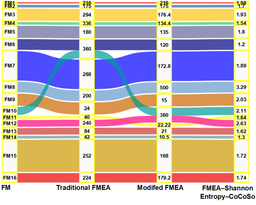Doulas Providing Breastfeeding Support During the COVID-19 Pandemic
Published in Healthcare & Nursing
Breastfeeding is one of the best ways to provide optimal nutrition and health benefits to both baby and mother. However, many birthing people have faced barriers to breastfeeding, especially during the COVID-19 pandemic, which has disrupted health services, social support, and maternal mental health. Doulas have played a vital role in providing breastfeeding support to nursing mothers. They have the skills, knowledge, and experience to help them overcome challenges and achieve positive breastfeeding goals.
Who are doulas, and what do they do?
Doulas are trained professionals who provide continuous physical, emotional, and informational support to birthing people before, during, and after childbirth. They are not medical providers but work alongside them to enhance quality of care throughout the birth experience. Doulas also offer postpartum support, including breastfeeding education, assistance, and encouragement.
What are the benefits of breastfeeding during a pandemic?
Breastfeeding offered many benefits for both mothers and babies during the COVID-19 crisis. Some of these benefits have been:
Protection from infections: Breastfeeding protects infants from many infections. It has not been proven that breast milk protects babies from SARS-CoV-2, the virus that causes COVID-19. However, several studies have found antibodies that target the virus in human milk. In addition, breastfed infants are generally less likely to have severe respiratory symptoms when they get sick.
Stress relief: Breastfeeding is beneficial to mothers’ mental health. Hormones released in the body during breastfeeding promote wellness and can relieve stress. Breastfeeding can also help mothers bond with their babies and feel more confident about their parenting abilities.
Convenience: Breast milk is readily available and does not require purchase or preparation. Breastfeeding can save time and money for families facing economic hardships or having limited access to formula or clean water during the pandemic.
How have doulas supported breastfeeding during the pandemic?
Doulas have been instrumental in providing breastfeeding support to nursing mothers before, during the COVID-19 pandemic, and continue to significantly impact a mother’s ability to initiate and maintain breastfeeding.
Virtual breastfeeding support: Doulas have used various online platforms such as Zoom, FaceTime, WhatsApp, or Skype to offer live video consultations, demonstrations, feedback, and troubleshooting for breastfeeding issues. They also used phone calls, text messages, emails, or social media to communicate with mothers and answer their questions and concerns.
Remote social support: Doulas have provided emotional support, empathy, reassurance, and affirmation to breastfeeding mothers who have felt isolated, anxious, or sad due to postpartum depression exacerbated by the pandemic. They also facilitated peer support groups or online communities where mothers could share their experiences, challenges, and successes with breastfeeding.
Advocacy and navigation: Doulas have helped mothers access other resources and services that support their breastfeeding journey, such as lactation consultants, pediatricians, mental health professionals, and community organizations. They also have advocated for mothers’ rights and preferences regarding breastfeeding in healthcare settings, which may have restrictive policies or practices due to COVID-19.
What have been the challenges and professional opportunities for doulas during the pandemic?
Doulas have faced many challenges in providing breastfeeding support during the pandemic, such as:
Lack of recognition as essential workers: Many hospitals or birthing centers did not allow doulas to accompany mothers in the hospitals during labor or delivery because of COVID-19 restrictions—this limited doulas’ ability to provide in-person support and guidance for breastfeeding initiation and any early challenges.
Limited access to technology: Some mothers or doulas may not have reliable internet connections, devices, or platforms to enable virtual communication or consultation. This can affect the quality and continuity of breastfeeding support.
Reduced income and sustainability: Many doulas have experienced reduced demand for their services or increased expenses due to the pandemic. This affected their livelihoods and capacity to continue offering services. There have been opportunities for doulas to adapt and innovate their practice during the pandemic, such as:
Expanding their reach and impact: Virtual platforms allowed doulas to offer their services to more mothers across different locations and time zones. They also were able to reach underserved or marginalized populations who possibly faced more barriers accessing breastfeeding support.
Enhancing their skills and knowledge: Doulas have used online courses, webinars, podcasts, or blogs to update their training and education on breastfeeding. They created networks with other doulas or professionals to exchange best practices and learn from each other’s experiences.
Advocating for system-level change: Doulas have used their voices and influence to raise awareness of the importance of breastfeeding support during the pandemic. They have lobbied for policy changes that recognize doulas as essential workers to the health care team and the need to integrate them into the health care system.
Conclusion
Doulas have been valuable allies for breastfeeding mothers during the COVID-19 pandemic. They provided various types of support to help mothers overcome challenges and achieve optimal breastfeeding outcomes. However, doulas faced many obstacles in delivering their services due to COVID-19 restrictions and guidelines. Therefore, system-level integration of doulas’ work and acknowledgment of doulas as essential healthcare providers are needed to enhance doula service delivery capacity, especially during a pandemic.




Please sign in or register for FREE
If you are a registered user on Research Communities by Springer Nature, please sign in